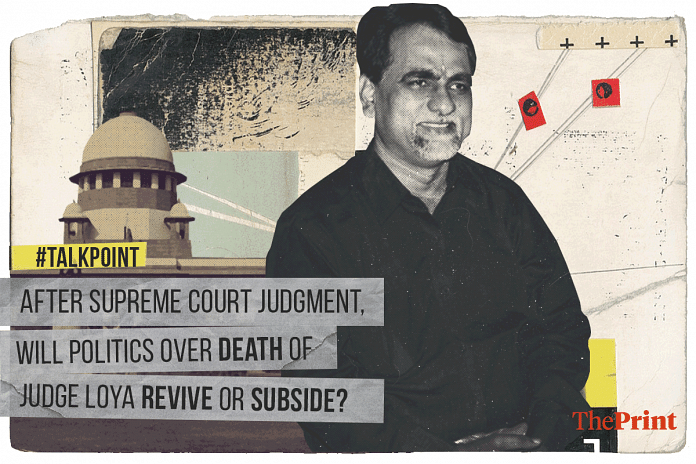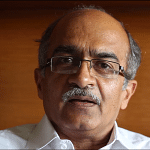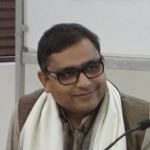
A three-judge bench of the Supreme Court headed by Chief Justice of India Dipak Misra rejected the pleas of several petitioners for an independent probe into the allegedly mysterious death of Judge B.H. Loya. At the time of his death, Loya was hearing the Sohrabuddin Sheikh encounter case.
In its judgment, the SC has ruled that the public interest litigation (PIL) was nothing but an attempt to malign the image of the judiciary.
ThePrint asks: After the Supreme Court judgment, will the politics over the death of judge Loya refuel or subside?
The judgment on judge Loya’s death will be another blow to the credibility of the Supreme Court and the Chief Justice
 Prashant Bhushan
Prashant Bhushan
Senior advocate, Supreme Court of India
Public questions about the death of judge Loya will certainly not subside just because of this judgment. People are greatly incensed by it. I have received hundreds of calls. People are calling this a murder of the rule of law, and a murder of democracy. This is a horrendous judgment, they say.
There were so many questions, from so many angles, raised by so many people. I do not understand, what was the problem in ordering an independent investigation?
There is more than sufficient evidence to order an inquiry. The ECG itself is sufficient. It doesn’t show signs of a heart attack. Neither does the histopathology report. That, to my mind, is decisive and conclusive evidence to disprove the heart attack theory. You can’t just decline the theory on the basis of a statement by four judges (those accompanying Loya) who have not even filed an affidavit. That is absurd.
It seems that this judgment has come due to government pressure. Even during the argument, the strain was clearly visible in the courtroom. There can obviously be a review, and curative action can be taken. But that is unlikely. It doesn’t succeed often, because the decision is reviewed by the same bench.
This will certainly be another blow to the credibility of the Supreme Court and the Chief Justice. His credibility has already been under question, this will just make the situation worse.
By casting aspersions on judge Loya ruling, nothing good is being done to the judiciary
 Soli Sorabjee
Soli Sorabjee
Former Attorney General of India
The politics over judge Loya’s death should subside now; the Supreme Court has given good and compelling reasons. We cannot go on doubting it. There is no use raising doubts all the time. The judgment on the PIL is very convincing and forthright. All these doubts and insinuations don’t look good for the institution.
The way judge Loya’s case is being raised is casting doubts on the neutrality and the independence of the judiciary. That affects the public perception and the independence of the judiciary. Politics over this is unfortunate and should be avoided at all costs. If there is one institution in this country which enjoys the faith and confidence of the public, it is the judiciary. And by casting such aspersions all the while, nothing good is being done to the institution.
People have brought up the problems afflicting the judiciary and the Supreme Court has dealt with it. We cannot go on perpetually doubting and asking for a review of all the decisions. The matter has come to an end and we have to accept it. We should give credence to the Supreme Court’s judgment today–they have gone through the records and come to a conclusion that judge Loya died a natural death.
We can always say that the questions and issues pertaining to judge Loya’s death have not been addressed properly or effectively. There should be a closure.
The petitions in judge Loya’s case had been filed with a malafide intent
 Raghav Pandey
Raghav Pandey
Senior fellow, department of humanities and social sciences, IIT-Bombay
I don’t think the politics over judge Loya’s death will subside even after this verdict. Ideally, it should, as the Supreme Court is the highest adjudicating body in the country and everyone, including the likes of Prashant Bhushan and Dushyant Dave, should learn to respect it.
We need to contextualise the fact that such petitions were filed in the court with a malafide intent in the first place.
I am very happy that the Supreme Court came down heavily on the petitioners today. Justice Chandrachud noted that the conduct of the petitioners amounted to contempt but the court didn’t initiate action. I think it should have, so that such opportunist petitioners are deterred from playing politics in the future by using the court as their means.
It is high time we realise that the judiciary remains out of politics, as has been the democratic tradition of this country. Our country works on a system of checks and balances, as enshrined in our Constitution, and the executive is kept in check by the judiciary. This role cannot be assumed by someone like Prashant Bhushan.
It has to be noted that the lawyer for the Maharashtra government in this case was Harish Salve, who, despite having a political background, is respected as completely apolitical. This should be the benchmark of the professionalism and ethics of our country’s lawyers.
We need to bear in mind that the judgment was pronounced by Justice Chandrachud, who is probably the most progressive and liberal judge of the Supreme Court in recent times. If a petition is for a fair probe, it must be up to the court to decide what is fair and what is not.
We deserve answers about the suspicious death of judge Loya, this is a biased judgment that reeks of political pressure
 Balwant Jadhav
Balwant Jadhav
Vice-president, Bar Council of Maharashtra and Goa
An inquiry into the death of judge Loya is of immense importance. There are two reasons: The suspected role of BJP president Amit Shah and the irregularities that have emerged over time in the case. Loya was my best friend, and the Supreme Court’s decision is an injustice to the spirit with which he always conducted himself.
A few months before his death, Shah was present at the swearing-in of Maharashtra chief minister Devendra Fadnavis. He was on stage, next to the Chief Justice of the Bombay High Court. There is pictorial evidence to prove this. This was completely out of protocol, especially considering the (Sohrabuddin Sheikh) case had been transferred to Maharashtra, because it was suspected he might influence the decision in Gujarat.
This is a biased judgment that reeks of political pressure. An inquiry is necessary; we deserve answers about the suspicious death of my friend.
The SC judgment actually provides us a reference point to ask substantial questions
 Hilal Ahmed
Hilal Ahmed
Associate professor, CSDS
We must make a clear distinction between a judgment pronounced by the judiciary, and political statements. There is a need to understand these in their entirety and their particular contexts. Court judgments are a response, in a set manner, in which certain issues are articulated in a legal language to offer legitimate legal and constitutional interpretations involved in a case. On the other hand, political statements and political interpretations do not entirely rely on the prescribed manner in which law functions.
Therefore, political interpretations often evoke the larger philosophical principles that guide legal interpretation. In this sense, comparing judicial interpretations with political ones is rather misleading.
The debate around judge Loya’s death and the circumstances in which it occurred certainly has the capacity to be interpreted politically. The mysterious circumstances in which he died and his association with cases involving senior politicians open that avenue.
But the judiciary is not entirely wrong because it followed the logic of judicial intervention. We must go beyond the rhetoric of a clean chit and try to draw our own meanings of the politics that has played out around this incident. In the larger context, the judgment actually provides us a reference point to ask substantial questions regarding the incident, rather than the biased ones that parties are raising.
The government has lost an opportunity to put to rest all concerns surrounding the death of judge Loya
 Prithviraj Chavan
Prithviraj Chavan
Former Maharashtra CM and Congress MLA
Despite the Supreme Court’s verdict rejecting the need for an independent probe, the politics surrounding judge Loya’s death will not end because there are deep suspicions on the way the investigation has been handled. In fact, the speculation will only rise now.
There are a number of questions that still remain unanswered such as whether there is any pressure being put on the family. There were also rumours of pressure on judge Loya to deliver a favourable verdict. There is still no clarity on all this.
The government has lost an opportunity to put to rest all concerns surrounding the death of judge Loya. The government could have appointed a retired judge of their choice for an independent inquiry. If it is sure that the death was natural and there was nothing suspicious, the inquiry would have anyway said so. It would have obliterated all doubts.
The Congress’s stance on judge Loya issue was a classic case of political opportunism
 Apurva Vishwanath
Apurva Vishwanath
Special Correspondent, ThePrint
It wasn’t the opposition that caught on to the controversy surrounding the death of judge Loya. Media reports, especially by the Caravan, became the basis of a rejuvenated campaign for a fresh probe.
The Congress’s stance on the issue was a classic case of political opportunism as questions raised by the media could eventually drag down BJP President Amit Shah.
More than the political fallout between the Congress and the BJP, the court’s verdict could refuel the internal crisis in the judiciary.
Remember the case was deemed important enough to be of concern for the four senior judges to bring it up in the 12 January press conference.
As much it relates to the politics involving BJP, the ruling is yet another example of the judiciary closing itself off from any outside scrutiny.
The court said that when questions are raised against judicial officers, it will favour them in the interest of an independent judiciary. It further adds that raising such questions is scandalous.
The court’s views are at odds with judges accused of corruption — just last month three judicial officers were arrested in Hyderabad on corruption charges. It is astounding that the court continues to shield itself from criticism even when critical questions are raised against it.
Also, the court, in its ruling, has opined on how public interest litigation (PIL) is misused. The judges called the petitioners an “industry of vested interests” who were out to ruin the image of an independent judiciary. But the same court had no qualms in entertaining a PIL just last week by a petitioner who previously was fined ₹1 lakh for filing frivolous PILs. The case related to powers of the CJI and the same bench passed orders after hearing the case for barely 5 minutes.
This doublespeak on PILs and selectively choosing to criticise petitioners is a cause for concern.
These are precisely the larger questions Justice Chelameswar and his three colleagues had flagged. Everything seems to be validating their views now.
Compiled by Deeksha Bhardwaj and Talha Ashraf, journalists at ThePrint.

An introspection by judiciary is long over due. Almost every activity has a deadline,we are penalized for in almost everything from water bills to income tax for omission of last date. there is no such thing for court cases.
Some judgments have not brought any good name for the judiciary but most unfortunately gives feeling which is scary.
It’s time to tell the Supreme Court what we re telling Modi. You guys are not divinity or special. If you make mistakes, they ll be pointed out. Like you announce judgments, people will sit in judgment of your orders. Saying that all judges must be trusted blindly is the most hilarious thing I ve heard in judiciary. Atleast come up with a better excuse to deny a probe. The Judge Loya case is not about whether SC feels insulted or its ego is hurt or not. They are irrelevant, because they are all alive and cushy even if a tad offended. But Judge Loya has died. I hope you see the difference in the seriousness of the matter. A bunch of Judges annoyed that they were not believed VS a judge who died. Died means does not live anymore. Is not around to feel affronted and act petulant. Has stopped breathing and hence can’t defend himself. This was about Judge Loya. SC loses all credibility with decisions like this and their explanation. I think they can live with being affronted, as against being dead. I hope SC understands how juvenile they look here.
The judiciary is the most sacred institution in a democracy. In fact it is more significant than even the election commission since it is a fair and strong judiciary that gives integrity to every democratic institution in the country. Whenever there is a slight doubt in any incident involving judges be it a threat or an attempt to harm and in the rarest of cases murder , then the whole machinery of the government should move to remove any doubt that will indirectly influence the morale and judgement of judges in the country. Whether there was a conspiracy in the Judges death or not , the damage has been made. The damage is that for now on judges will think twice before producing a judgement against certain people. May be this atmosphere of doubt was what was intended from this whole episode. The sense of safety and security of a judge is not just the right of the judge as a citizen but it is the fundamental requirement for the judge which as the judiciary is an institution.
I read your first line as: The judiciary is the most scared organisations.
There is a risk now that the Congress will press ahead with the impeachment motion.